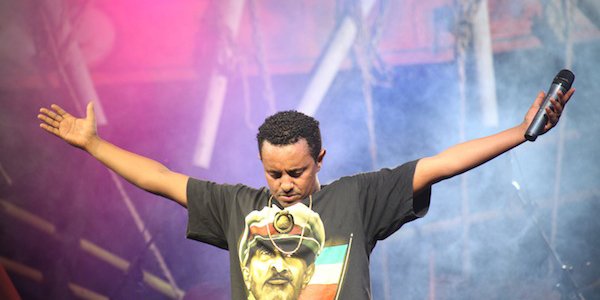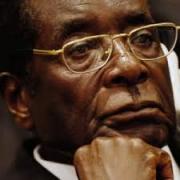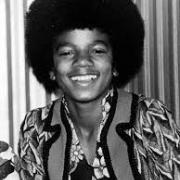BIOGRAPHY TEDDY AFRO
Raised by musical parents, it was apparent at an early age that Tewodros Kassahun , (now know as Teddy Afro) had a deep love of music. Over the past ten years, Teddy has emerged as the number one voice in Ethiopia, breaking records for album sales and show attendance. He is known far and wide, inside and out of Ethiopia as the rising star of East Africa.
The 2001 debut release of “Abugida”, was a landmark recording that established Teddy as a musical power to be reckoned with. “Abugida” is a word that means “beginning”, in the language of Ge’ez (the predecessor to the modern spoken language of Amharic) and this recording is aptly named as it marks his entrance on the national stage.
Using reggae rhythms combined with the traditional sounds of Ethiopian music, the songs are sung exclusively in the national language of Ethiopia, Amharic. Influenced by Ethiopian Maestro Tilahun Gessesse and international reggae superstar Bob Marley, Teddy combines the musicianship and message of his mentors. Singing of freedom from tyranny and self-emancipation on his debut release, he defined his voice as a songwriter as well as a singer. Using the keyboard as his primary vehicle for songwriting, he has written both hooks and melodies that have become a mainstay in Ethiopian pop culture.
Yastesereyal, the title track of his sophomore effort (2005) was released one week prior to forthcoming parliamentary elections. Though the song was an instant hit it caused great controversy with the sitting government. Meaning “forgiveness” the track addressed the lack of progress since the overthrow of Haile Selassie throughout the derg (Mengistu Haile Mariam, 1974 – 1991) and into the current regime. His words pointed out that despite an honorable intent driving the original student uprising, corruption remained the status quo. Many governmental officials took offence to his observations as they shown a light on the government of that time and pointed out their shortcomings and stagnation.
With great internal divisions in the ethnic groups within Ethiopia, the song pleas for the people to forgive one another and unite for the benefit of their great nation. His cry for unity and progress resonated with the population at large however, given the political sensitivity of the subject, the song was banned on both radio and television by the standing Ethiopian Government. This ban fueled his popularity to new heights amongst the young generation.
As his career began to soar, he was viewed as a threat to the establishment. He felt free to express his contradictory opinion while other public figures held their tongue. Teddy’s songs glorified the great Ethiopian history, relishing in the innovations and progress driven by His Imperial Majesty Haile Selassie over his forty- year reign.
In February 2005, he was introduced to a wider international crowd when he appeared at the 60th Anniversary concert for Bob Maley. Sharing the stage with the new generation of Marleys, he displayed a newly styled infusion of reggae with Ethiopian melodies.
Following the release of Yastesereyal, Teddy issued an earlier recording effort, Tarik Tesera in 2006. The title track of Tarik Tesera was a tribute song for the internationally heralded Ethiopian runners Haile Gebreselassie and Kenenisa Bekele and it was a clear illustration of his songwriting talents. This song quickly established itself as an anthem celebrating the majesty of the Ethiopian people.
In 2007, a tragedy took place with the death of an eighteen-year old homeless person in a vehicular accident. Teddy was charged with hit & run vehicular manslaughter in the death of this man. This jailing caused spontaneous demonstrations by thousands of Teddy Afro fans.
Initially, a six-year jail sentence was pronounced and Teddy was sent to prison. This act further catapulted Teddy’s popularity to cult status. He spoke out on human rights issues without fear. Many felt his imprisonment was symbolic of the systematic oppression of dissent.
Teddy’s time in jail was reduced for good behavior ultimately spending 18 months in prison. While many would consider this a career roadblock, Teddy reflects on his days in prison and the spiritual benefits that it brought him. In reflection, he sees this time as one that built compassion on many levels. From his relationships to the prison officials, guards and other prisoners, Teddy spent time getting to know people of all backgrounds and writing music from various perspectives. The months out of the lime-light allowed time for reflection of the past and also provided time to visualize the future, reinforcing his commitment to do good when he was released. As freedom was further restricted, his commitment to his vision was cemented.
The day of emancipation came in 2009. At last Teddy was free to speak again on a broad platform. With great focus, he prepared to perform a highly anticipated come-back concert at the Addis Abeba Stadium. This concert turned out to be a triumphant return on an almost unimaginable scale. With over 60,000 people in attendance, this concert galvanized his status as the number one singer in the country. It was a celebration not to be forgotten by any Ethiopians in the current generation.
A long anticipated follow up record entitled “Tikur Sew” was released in 2012. After 7 years of waiting, the fans received exactly what they hoped for. Tikur Sew is translated into “Black Person” and it celebrates the victory of Adawa, an historic battle between the Ethiopians and the Italians. As the only country never colonized in Africa, Teddy uses this battle as an illustration of pride, not only for Ethiopians, but for Africans at large. The body of work also glorifies King Menelik II as a great leader of Ethiopia, using his hand to drive progress within the kingdom.
The release of Tikur Sew is said to be the most anticipated album ever in Ethiopia. Breaking records for initial sales, the momentum of his popularity swelled. Since this release, Teddy has graced stages all over the world with his band, “The Abugida Band”. Comprised of top-notch musicians, the live show is entertaining and compelling. The band is well versed in traditional Ethiopian music, but can easily breakdown into a live dub that will capture the attention of any music lover. Touring Ethiopia, the US and even performing in South Africa at the Mandela Square in support of the Ethiopian Soccer team at the African Cup Tournament, Teddy is universally seen as a social political and musical revolutionary.
Equally important as his musical impact are his philanthropic contributions. A devout Christian, he has used his success to donate hundreds of thousands of Birr (Ethiopian Currency) to various non-profit organizations such as Abebech Gobena (a charity for homeless youth) and the Ethiopian National Society for the Disabled, an organization dedicated to the rehabilitation of handicapped people in Ethiopia. Knowing that the progress of Ethiopia lays in the hands of the youth, Teddy visits schools along his touring routes and spends time with kids following his concerts.
As a personality, he has been lauded in international press from China’s CCTV to the BBC. Not unlike celebrities everywhere, the international community keeps track of his developments and actions and features him regularly in television, print and radio.
Still a young man, Teddy has many secrets yet to reveal and works to record. His vision has yet to be manifest in its entirety. While known in a limited fashion to the world outside of Ethiopia, it is only time before he is known as one of Africa’s greatest musical stars. As a voice for the people and a prolific songwriter, his legendary status has already been established.
source: koraawards.com




